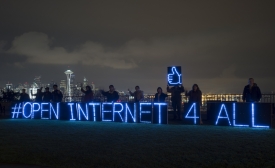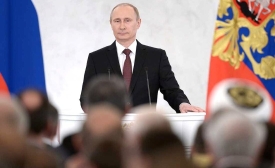censorship

If the inclusion of Internet freedom under human rights is contentious, digital rights might be the way forward.
Despite China’s economic progress, the latest developments suggest its leaders still believe that propaganda and censorship are its two main tools of rule. Sadly, such leftist campaigns to curb free speech and the free flow of information will ultimately constrain China’s development, which today depends on technological advancement, creativity and innovation.
Cuba is in a position where it could use some soft power appeal, particularly on the same social issues—like unemployment or the treatment of Afro-Latinos—that neighboring countries are going through. If Cuba is aiming to have a rap scene with actual international appeal beyond the club circuit, the state should relax its hold.

Rap, once disdained in Cuba for its American origins, is being appropriated by the state to push a pro-party line. But the state would win more by allowing artists to work freely.

What do Russians think of their country's hawkish foreign policy?
Thirty-three years ago this week, Soviet fighter jets shot down a Korean Airlines passenger jet that had strayed into Soviet airspace while on a scheduled flight from New York to Seoul. Two hundred and sixty-nine passengers and crew were killed, including a U.S. Congressman. At first, Moscow denied that this had happened, then it claimed that the commercial flight had been gathering intelligence. No apologies were ever made.

The USSR responded to negative press with denial and censorship. Now, Russia is relying on the same tactics.
China’s growing control of the movie industry also exists downstream. AMC Theaters is owned by the Dalian Wanda group, whose board members have ties to the communist government. AMC is currently finalizing a merger with Carmike Cinemas that will make it the biggest movie chain in the United States with more than 8,000 theater screens.







